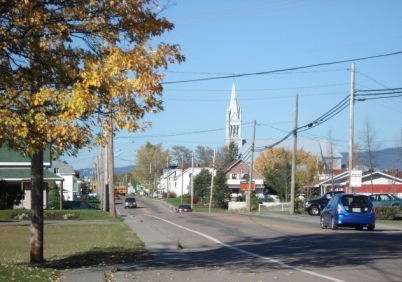|
There are people who live in rural areas, for example, who prefer
natural milk, despite state propaganda telling us about the dangers of such milk.
For many years, cheese curds were made of natural milk, with an exemplary safety
record stretching back for over a century. Cheese, yogurt and many other dairy
products are still made from natural milk that comes straight from the cow in
many European countries. As long as the cow is healthy and the milk container is
clean, people who consume natural milk appear to be quite healthy. Out in the
countryside and away from the larger cities, many rural people across North
America consume natural raw milk, straight from a healthy cow and free from any
adverse side effects. It is as if rural people have taken a stand against state
intrusion into their kitchens and dinner tables.
 The adherence to freedom in rural areas goes well beyond natural raw
milk to include many other aspects of life. Notably, it includes the way people
travel. Transport regulations restrict the choice of transportation providers
for organized groups—that is, customers have to travel with state-approved
providers whose viability is protected by economic regulation. Transport
regulators claim to be ensuring public safety when they restrict people’s modes
of travel or the choice of vehicles in which they may travel. For instance, a
Quebec manufacturer of on-road electric vehicles was able to market its products
outside of Canada but not domestically, as their products had not been approved
for operation on Canadian roads.
The adherence to freedom in rural areas goes well beyond natural raw
milk to include many other aspects of life. Notably, it includes the way people
travel. Transport regulations restrict the choice of transportation providers
for organized groups—that is, customers have to travel with state-approved
providers whose viability is protected by economic regulation. Transport
regulators claim to be ensuring public safety when they restrict people’s modes
of travel or the choice of vehicles in which they may travel. For instance, a
Quebec manufacturer of on-road electric vehicles was able to market its products
outside of Canada but not domestically, as their products had not been approved
for operation on Canadian roads.
But hard-working rural and village folks have little use for such
regulatory lunacy. This author does on occasion visit rural areas as well as
villages located far away from any big city. At such locations, it is possible
to go to the front door or the back door and purchase a wide variety of products.
The property or business owner may be forbidden by state regulation to market
their products privately, or even advertise that they may have anything
available for sale. But rural folks usually do have something available for
sale, especially if the buyer is someone whom they may know.
|

